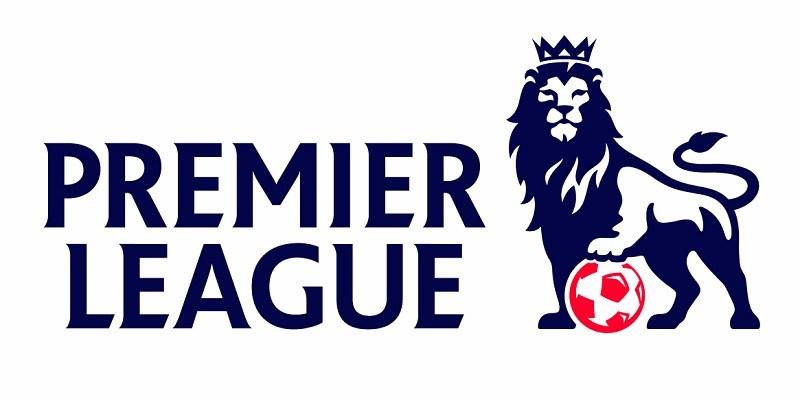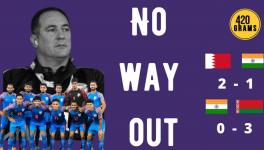Football’s Top Leagues More Predictable Now, But What’s The Cost?

In the last 10 years, the top six in the English Premier League have been the same -- Manchester City, Manchester United, Chelsea, Arsenal FC, Tottenham Hotspur and Liverpool FC (Pic: EPL Twitter).
All the European football leagues will be up and running by this weekend, the long season ahead promises fans a fix for the FIFA World Cup hangover. From non-stop footballing action to betting opportunities for punters; from fantasy leagues to jersey hunting sprees post record transfer tales, the platter is full. And, at the end of it all, the usuals in the Premier League would lift the trophy in England, it would be one of the three clubs in Spain, while in Germany, it would most probably be Bayern Munich, unless there is a major upset.
Be it England, Spain, Italy, Germany or France, the major globally-consumed domestic football leagues in Europe are controlled by a few “top” clubs. The control, needless to say, starts from revenue, and spills into many areas, with the monopoly on the title coming out as an inevitable by-product.
Football is complex when it comes to the year long league competition, unlike the romantic simplicity of, say, the FIFA World Cup. This edition of the global tournament in Russia threw open a few surprises where the pre-tournament big guns, and the game’s superstars, never made it to the business end of the tournament. While the tournament provided rare glimpses of a footballing utopia, where almost everyone has the potential or chance, to win a month long competition, professional leagues around the world are far from utopian in existence.
Also Read | Golden Freedom: Legacy of Independent India’s First Hockey Olympic Gold in 1948
The English Premier League -- the world’s most popular domestic football competition -- is a classic example of this power hierarchy in the game.
The league, in its current avatar, began in 1992-93, and since then, apart from Blackburn Rovers (1994-95) and Leicester City (2015-16), only four teams have won the EPL title. In the Premier League standings for the past 10 years, the top six have more-or-less been the same -- Manchester City, Manchester United, Chelsea, Arsenal FC, Tottenham Hotspur and Liverpool FC involved in a seemingly endless game of musical chairs for positions and Champions League berths, if not the championship itself.
This phenomenon correlates with Fivethirtyeight.com’s Football Power Index which ranks football clubs around the world based on their performances on the pitch, and ratings of offence, defence and victories. And four of the top six Premier League clubs mentioned above are in the top 10 of the Index which is updated every week and acts as quite an accurate tool for result prediction, claims the website.
Also Read | Single Owner, Million Questions: Arsenal FC’s Stan Kroenke Era Begins
Predictions are easier in the Premier League than the League Cup or the FA Cup where upsets happen when lower division sides punch above their weight, and the sense of occasion can catapult victory through adrenaline. When it comes to the EPL, the best sides, with the money to splurge and rope in the best, rule the roost as well as the viewership (in other words, money) across the world.
It’s not a isolated, “Brexited”, phenomenon either. Across the English channel, the distribution of power in the leagues is much more lopsided.
Take Spain for instance. In the last decade, FC Barcelona has won the title seven times, Atletico Madrid once and Real Madrid twice. In Germany, the domination is even more one-sided, damning even. Since 2008, Bayern Munich has won seven Bundesliga titles, including six back-to-back triumphs since 2012-13. The rest were split by VfL Wolfsburg (1) and Borussia Dortmund (2). The Serie A, of late, has been with Juventus FC -- they won the last seven Scudettos -- while the Milan sides shared the rest between themselves (two for Inter between 2008-10 and one for AC Milan in 2010-11).
Also Read | Gibraltar United’s Cryptocurrency Plunge Too Rushed to Be a Football Revolution
The fans of these sides are happy with the so called footballing legacy these clubs are creating for themselves. However, will such footballing hegemony be good for the league and, in a larger sense, the game itself?
Former India international Renedy Singh says one-sided competitions are never good as when we know what the outcome of most of the fixtures would be, the interest in the competition wanes. He gives an example of how an Atletico vs Real fixture and the El Clasico between Barca and Real are the two most sought after matchups for him in La Liga, but he doesn’t take interest in the rest.
“Barcelona playing Malaga for instance, the result is, on most occasions, a forgone conclusion,” says Renedy. “I agree that Spanish football is the most technically superior in the world. But as a fan, I enjoy the big sides when they play there and the rest I find the matchups predictable. That’s one reason why I follow the Premier League closely.”
Also Read | Racism Should Never Ever Be Accepted: Mesut Ozil’s Open Letter (Full Text)
Renedy feels the Premier League has a much more democratic distribution of power, and thereby chances. To start with, while the other leagues have their “top two” or “two three” as the norm, EPL has its top six. That itself make things interesting at the top. Then comes fairytale runs in the league. Renedy recalls Crystal Palace’s journey from last season.
“Crystal Palace were down for the count, scoring, I think, just one point from nine matches or so,” says Renedy (The team made the worst start in English top flight history, losing six straight games and scoring no goals) . “From there, they turned it around and finished 11th last season. This year, they didn’t splurge much on signings but have already opened with a bang, beating Fulham on the opening weekend. I will be following Palace this season. The Premier League throws up such teams which take on the dominance of the big sides and that’s what makes it the most popular league in the world, despite there being no real surprises as far who the eventual champions would be.”
Renedy has a point here which was best illustrated by Leicester City’s title victory in the 2015-16 season. Arguably, such a fairytale victory would not have happened in any other league. Be it Leicester's run that season, or Burnley’s brilliant showing last edition -- they finished a surprising seventh in the league last season -- the Premier league has its own set of unpredictability that keeps some of that old charm alive.
Also Read | What Indian Sports Stars Can Learn From Socrates
However, the other leagues don’t offer such romanticism, and when they do, it is too little and too rare -- an upset here, a victory there.
It is evident that competitiveness and unpredictability adds value to a league or tournament, and most big competitions in Europe are falling behind. That reflects in global viewership and the money that the leagues, and the clubs generate through it.
This cycle is a dizzyingly spiralling one. The money earned helps the league (EPL in this case) and the sides do better each passing season, making things further interesting. La Liga, Serie A or the Bundesliga are far behind in this regard. Luckily, revenue and viewership are balanced off a bit thanks to the popularity of the UEFA Champions League, most probably because of the international nature of the competition, despite its predictability.
The real quest for fans (especially ones who are not directly associated with the club or the country where the league is being played) is football played in its truest essence. They will throng to the arena which provides it best.
Establishing a monopoly -- while good for the club and its fanbase -- needn’t always help the side, nor the league, and least of all the game. With football being governed by a lot of factors outside of the game, such an evolution in the system is an eventuality, and what the future holds is beyond prediction, unlike the result of most league competitions!
Get the latest reports & analysis with people's perspective on Protests, movements & deep analytical videos, discussions of the current affairs in your Telegram app. Subscribe to NewsClick's Telegram channel & get Real-Time updates on stories, as they get published on our website.
























